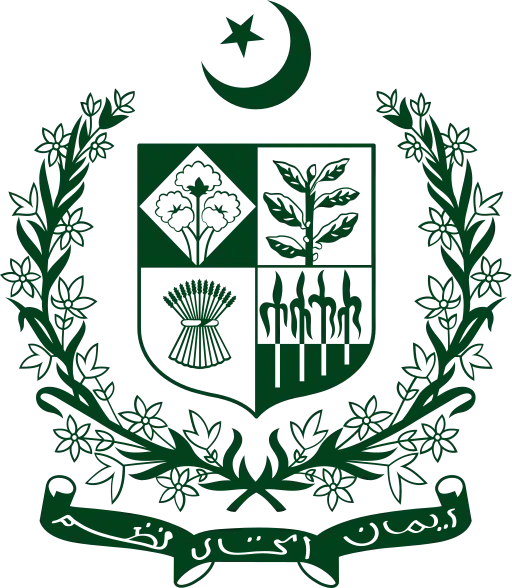Jahanara Shahnawaz | |
|---|---|
| Member of the Constituent Assembly of Pakistan | |
| In office 10 August 1947 – 24 October 1954 | |
| Constituency | Lahore District |
| Personal details | |
| Born | 7 April 1896 Lahore, Punjab, British India |
| Died | 27 November 1979 (aged 83) Pakistan |
| Nationality | |
| Spouse | Mian Shah Nawaz |
| Parent |
|
| Occupation | Politician |
| Known for | Pakistan Movement |
Begum Jahanara Shahnawaz (7 April 1896 – 27 November 1979) was a politician and Muslim League activist.[1] She was the daughter of Sir Muhammad Shafi.[2] Her husband was Mian Shah Nawaz. She studied at Queen Mary College, Lahore, British India.[2]
Political career
In 1918, Jahanara Shahnawaz successfully moved the All India Muslim Women's Conference to pass a resolution against polygamy.[2] In 1935, she founded the Punjab Provincial Women's Muslim League.[2] In the Round Table Conference of 1930, she and Radhabai Subbarayan were the only two active members of women's organisations nominated to the conference; they argued unsuccessfully for a 5 per cent reservation for women in the legislatures.[3]
In 1937, she was elected to the Punjab Legislative Assembly and was appointed Parliamentary Secretary for Education, Medical Relief and Public Health.[2] In 1938 she became a member of the Women's Central Subcommittee of the All India Muslim League.[2] In 1942 India's government appointed her as a member of the National Defense Council, but the Muslim League asked League members to resign from the Defense Council.[2] She refused and was thus removed from the Muslim League.[2] However, she rejoined the League in 1946, and in that same year was elected to the Central Constituent Assembly.[2] That year she also went along with M. A. Ispahani on a goodwill mission to America, to explain the point of view of the Muslim League.[2] She was arrested along with other Muslim League leaders during the Civil disobedience movement in Punjab in 1947.[2]
In 1948, she led a protest of thousands of women in the streets of Lahore, protesting against the fact that a bill encouraging better economic opportunities for women had been removed from the agenda.[4] Prime minister Liaquat Ali Khan intervened, and the Muslim Personal Law of Shariat of 1948 was passed; it legally recognized a woman's right to inherit property, including agricultural land, which had not been recognized during the British Raj.[4]
She was president of the provincial branch of the All India Muslim Women's Conference for seven years, and also served as vice-president of the Central Committee of the All India Muslim Women's Conference.[2]
She was the first woman in Asia to preside over a legislative session.[5] She was also associated with the education and orphanage committees of the Anjuman-i-Himayat-i-Islam, in Lahore, and with several hospitals, as well as maternity and child welfare committees.[2] She was a member of the All Indian General Committee of the Red Cross Society.[2]
Books
Jahanara Shahnawaz wrote a novel titled Husn Ara Begum and her memoirs titled Father and Daughter: a political autobiography.[6][7][8] She also wrote for women's and literary magazines.[6]
Death and legacy
Jahanara Shahnawaz died on 27 November 1979 at age 83.[2] She had three children: Ahmad Shahnawaz Sr., a chemical engineer and the first Indian to attend Massachusetts Institute of Technology (MIT), Nasim Shahnawaz (Nasim Jahan), who married General Akbar Khan and later became a politician of the Pakistan Peoples Party, and Mumtaz Shahnawaz, who died in a plane crash in 1948 while on her way to the United Nations General Assembly to represent Pakistan there.[5][9]
Jahanara Shahnawaz worked for the economic independence of Pakistan. She was of the view that the foreign policy of Pakistan should be based on trade among nations and not aid.[10]
See also
References
- ↑ Muneeza Shamsie (11 July 2015). And the World Changed: Contemporary Stories by Pakistani Women. Feminist Press at The City University of New York. pp. 5–. ISBN 978-1-55861-931-9.
- 1 2 3 4 5 6 7 8 9 10 11 12 13 14 15 "Profile of Begum Shah Nawaz". Storyofpakistan.com website. 1 June 2003. Archived from the original on 5 July 2019. Retrieved 2 March 2023.
- ↑ Partha S. Ghosh (23 May 2012). The Politics of Personal Law in South Asia: Identity, Nationalism and the Uniform Civil Code. Routledge. pp. 234–. ISBN 978-1-136-70512-0.
- 1 2 Shireen Burki (22 August 2013). The Politics of State Intervention: Gender Politics in Pakistan, Afghanistan, and Iran. Lexington Books. pp. 22–. ISBN 978-0-7391-8433-2.
- 1 2 "Pakistan Day: Women at the forefront". Dawn (newspaper). 21 March 2010. Retrieved 24 January 2020.
- 1 2 "Most extensive website on the famous Begum Jahan Ara Shahnawaz with many historical Photographes and press clipping". Archived from the original on 20 December 2017. Retrieved 21 April 2016.
- ↑ Father and Daughter: a political autobiography. Lahore: Nigarishat, 1971. Also: Karachi: Oxford University Press, 2002 0195796462
- ↑ Cynthia Nelson; Shahnaz J. Rouse (2000). Situating Globalization: Views from Egypt. Transcript. p. 133 and 156. ISBN 978-3-933127-61-7.
- ↑ "Life & Times of Begum Shahnawaz". Archived from the original on 23 October 2019. Retrieved 2 March 2023.
- ↑ "Economic freedom for Pakistan vital". Dawn. Pakistan. 14 December 2012. Retrieved 30 November 2020.
External links
- Begumshahnawaz.com Archived 28 November 2019 at the Wayback Machine
